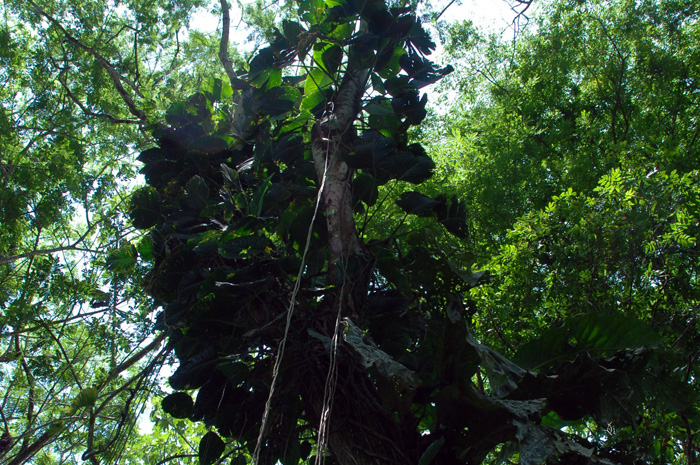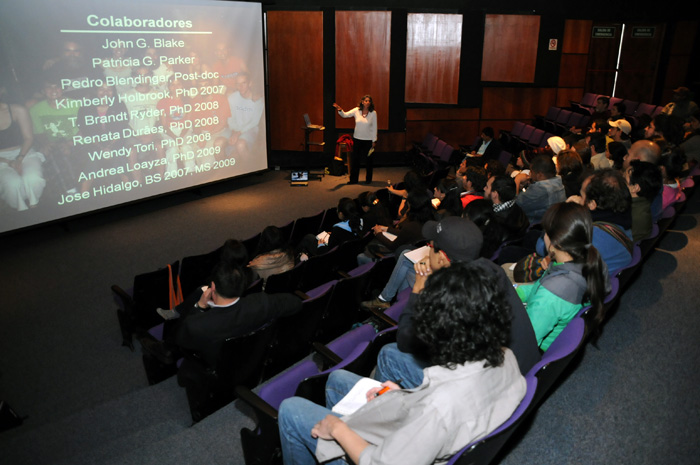This conclusion was made by Doctor Bette A. Loiselle, director of the Program for Tropical Development and Preservation of the Center for Latin American Studies at the University of Florida in the United States, who socialized her investigation at the Institute of Natural Sciences of Universidad Nacional de Colombia in her conference "importance of relationships in reproductive success and selection opportunities: examples of mutualisms disperser-seed and type lek mating systems.
This study starts with the question. What is the importance of birds, within biodiversity, in the regeneration of tropical forests"
The investigations made in Costa Rica and in the Ecuadorian Amazon allow concluding that birds are very important, fundamental, as dispersers for plants, explained the researcher. Initially they assume the role as collectors of seeds and then, as long distance dispersers.
"Without birds, most seeds would fall under trees, where their reproduction and survival possibilities are limited due to the luminosity conditions and the competence with their progenitors," asserted Loiselle.
For this reason, plant conservation needs long distance seed dispersal, and in these times of climate change, it is very important to find new regeneration places.
The outcome of this investigation allows making comparative studies regarding biodiversity aspects, temperature, precipitation, etc, since the processes are the same in any Latin-American region, although results are different.
"Our investigation shows that bird hunting diminished the possibilities of seed dispersal. The lost of big dispersers is noticeable in shot time due to the reduction of trees of big seeds," asserted the Professor.
The most vulnerable birds, according to the researchers, are toucans, turkeys, macaws, parrots and parakeets, which are dispersers of big seeds that cannot be manipulated or transported by other birds.
 Correo Electrónico
Correo Electrónico
 DNINFOA - SIA
DNINFOA - SIA
 Bibliotecas
Bibliotecas
 Convocatorias
Convocatorias
 Identidad UNAL
Identidad UNAL





